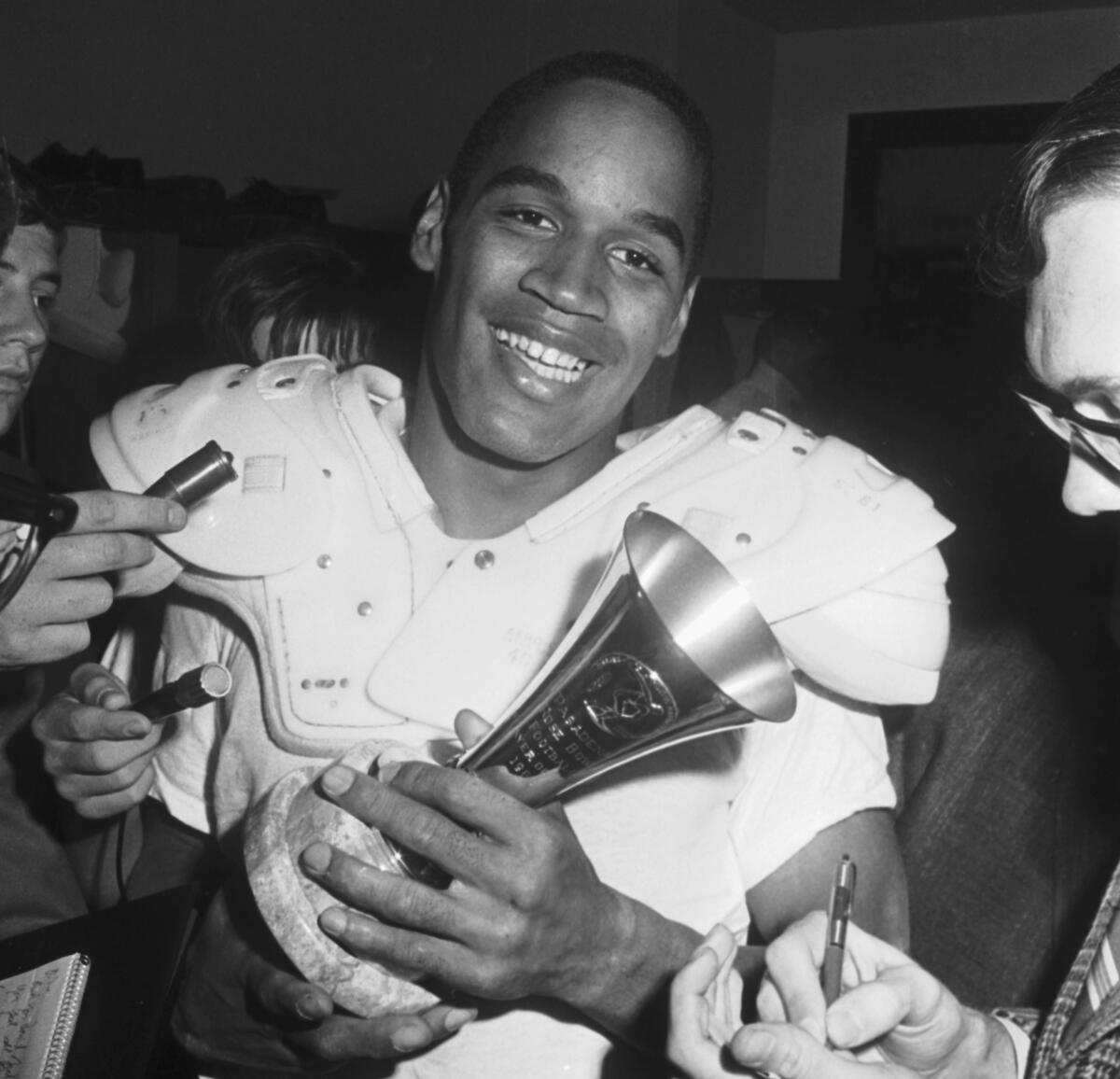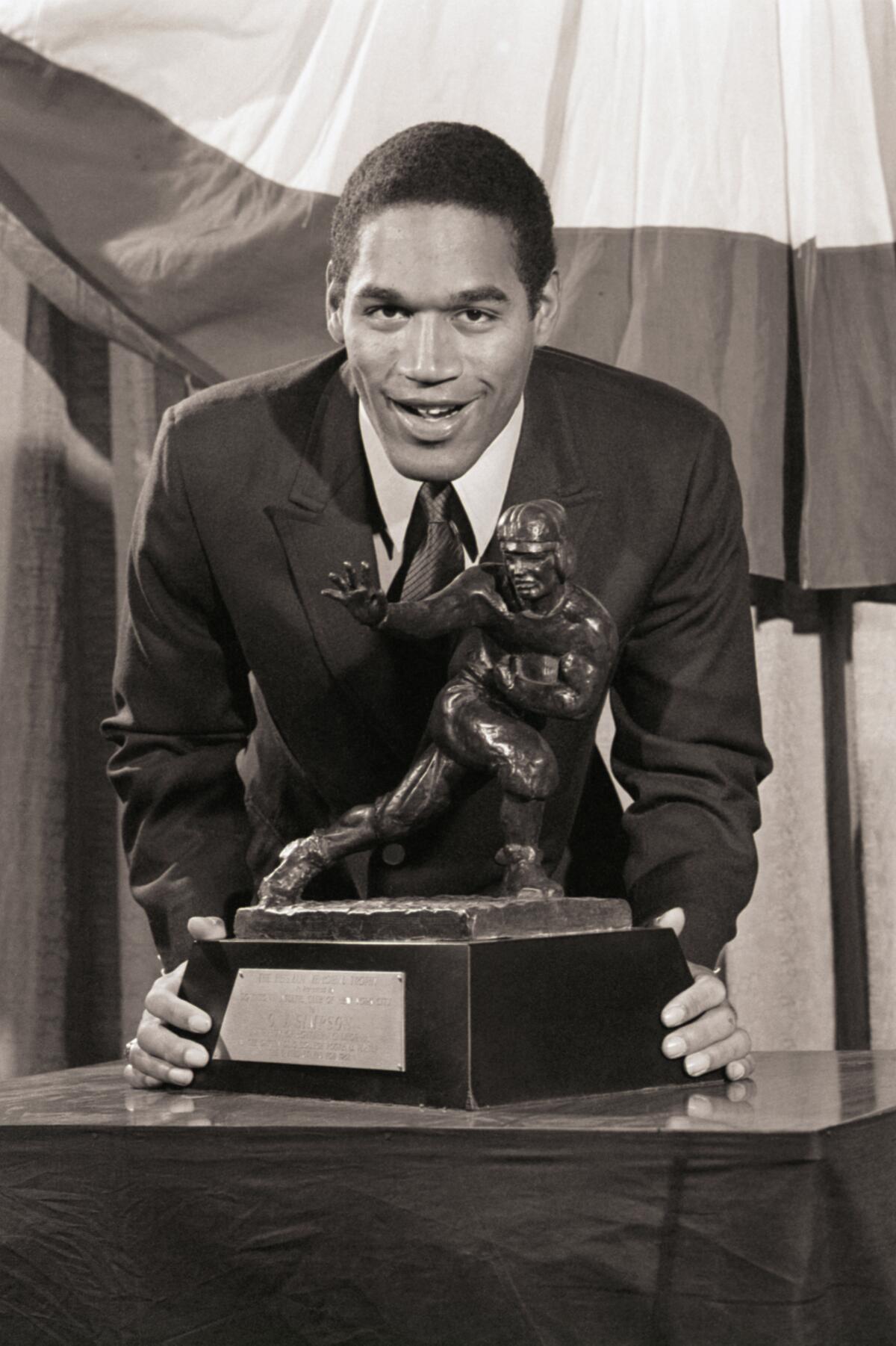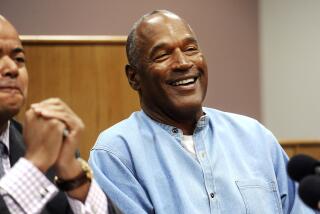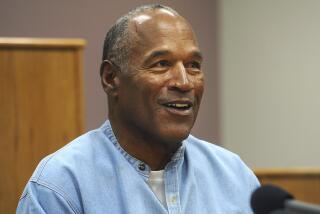Commentary: Silence spoke volumes about O.J. Simpson’s deeply tarnished football legacy

- Share via
The terse response from the Pro Football Hall of Fame to O.J. Simpson’s death says so much in so few words.
No flowery language. No hyperbole. Straight facts.
“O.J. Simpson was the first player to reach a rushing mark many thought could not be attained in a 14-game season when he topped 2,000 yards,” Pro Football Hall of Fame president Jim Porter said in a statement. “His on-field contributions will be preserved in the Hall’s archives in Canton, Ohio.”
Therein lies the difficulty in writing about Simpson, whose feats on the field were unquestionably historic. Football is meaningless, however, in comparison to the murder of two people.
O.J. Simpson, whose rise and fall from American football hero to murder suspect to prison inmate fueled a public drama that obsessed the nation, has died.
No matter where you fall on that double murder, and the subsequent acquittal of Simpson, a huge segment of American society will never believe he was innocent of the crime. He was later found liable in a civil suit for the deaths of his ex-wife, Nicole Brown Simpson, and her friend, Ronald Goldman.
Simpson subsequently spent nine years in a Nevada state prison after a jury in 2008 found him guilty of 12 charges including armed robbery and kidnapping.
The bottom line Thursday: A onetime football hero and pop-culture superstar died and, while they might know how to feel, no one knew exactly what to say.

In the immediate aftermath of the news, neither his alma mater, USC, nor the Bills rushed to make public proclamations. The NFL has no plans to release one.
In truth, can you blame them?
Were this a different star player, not one so shrouded in ignominy and infamy, there would have been an outpouring of respectful statements and deep sympathies. We know that template.
None of that happened here, and that says all you need to know about someone who went from a darling of the sports and entertainment worlds to a radioactive pariah.
At one time, Simpson was surrounded by sound — cheering fans, laughing audiences, his own voice pitching rental cars and broadcasting sports. Then came the crime, the trial, the verdict and the round-the-clock national conversation that accompanied it. Endless chatter.
Upon his death, it was silence that told the story.
More to Read
Go beyond the scoreboard
Get the latest on L.A.'s teams in the daily Sports Report newsletter.
You may occasionally receive promotional content from the Los Angeles Times.












